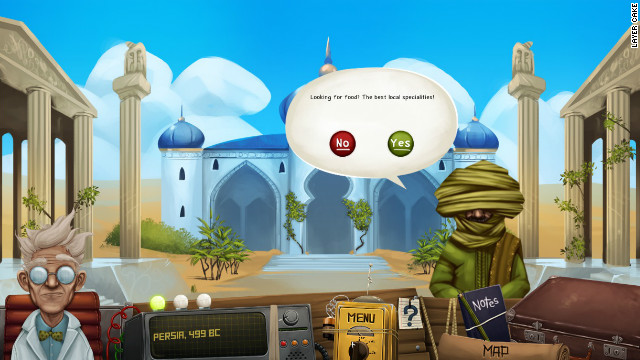Serious games are becoming more often used for employees headed overseas. These pieces of software give business travelers the chance to acclimatize themselves prior to visiting a foreign location.
“The biggest failure of traditional (training) techniques is that they are not engaging enough for learners to stick with,” notes Mike Emonts, the senior business development specialist at Alelo, a software company that specializes in Virtual Cultural-Awareness Trainers.
Originally, Alelo’s products were created to train military and government personnel to operate abroad. The first pieces of software helped users deal with realistic scenarios like managing a crowd in Iraqi Arabic or direct rebuilding measures in Pashto, but now the company is working to adapt their model to fit with enterprises doing business internationally.
“We believe the effectiveness of our solution would apply to the travel market,” says Emonts. “The bottom line is that travelers are not looking to simply learn a language. They want to order at restaurants, and ask people directions. They have specific tasks they want to be able to accomplish. Our training solutions are specifically developed for this purpose.”
While serious games have penetrated many fields, business travel is a new, untapped sector. Louis Bernard, who has recently developed Mr Travel believes his is the only travel security game on the market.

“I’ve done my homework, and there’s nothing else out there that does what we do,” says Bernard. “Travel security presentations can be boring. That’s why I developed Mr Travel; I wanted to come up with a way to engage employees, and ensure they actually retain the appropriate information.”
Ian Bogost, a professor at the Georgia Institute of Technology and a founding partner of Persuasive Games, thinks that diminished profits have made some companies reluctant to invest in serious games.
“The idea of using a medium like games, or anything else that’s new and slightly unproven, or unfamiliar, always puts it at a disadvantage,” says Bogost.
Bogost developed Jetset, a tongue-and-cheek game about airport security aimed at business travelers, back in 2007, though he didn’t find much market for it at the time. “If you travel a lot, and watch what folks are doing on airplanes, you’ll find them playing Solitaire or Bejeweled on their iPhones,” notes Bogost. “They’re [playing] games that don’t have anything to do with the travel experience, because really, when you’re traveling, you just want it all to go away; you don’t want to think about the fact that you’re on a plane.”
Still, Bogost sees tremendous opportunity for more advanced games in the travel industry. “Business travel seems like a great audience for this type of media,” he notes. “They always have (personal electronic devices) on their person, they’re stuck in one place for long periods of time, and stuck in one place where they have internet access. On the surface, it makes sense.”
Source: CNN.com

